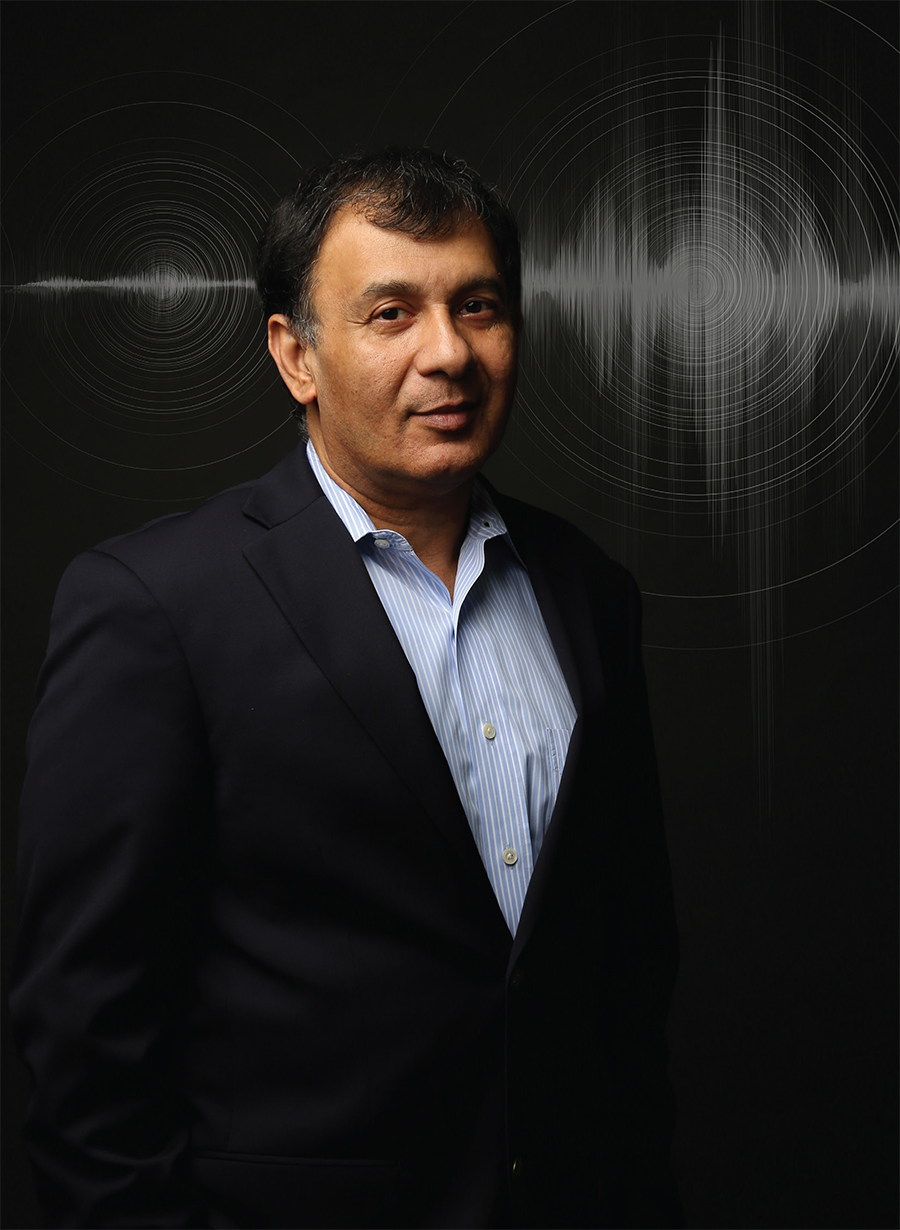Faculty
Energy Earthquakes
Bauer Researcher Studies Innovation in Energy Industry

BAUER COLLEGE PROFESSOR PRAVEEN KUMAR, CULLEN DISTINGUISHED PROFESSOR AND CHAIRPERSON OF THE DEPARTMENT OF FINANCE, EXAMINES THE IMPACT OF INNOVATION ON EVERYTHING FROM STOCK RETURNS TO THE WORLD ECONOMY.
A short list of the forces remaking the business world as we know it highlight how critical it is for business schools to stay relevant.
A transitioning global economy, rapidly advancing technology, climate change, and shifting organizational structure and identity for many of the Houston area’s dominant industries have created an unprecedented need for innovation.
Bauer College Professor Praveen Kumar, Cullen Distinguished Professor and chairperson of the Department of Finance, has been involved in the study of innovation for years – publishing academic research that examines what factors encourage and discourage it, and its impact on everything from stock returns to the world economy.
Kumar has also initiated and encouraged innovation at Bauer, and in the corporate world – by advocating for integrating the finance and strategy sectors of business, introducing classes designed to prepare students for the next wave of the energy industry, and by teaching an executive education course for a global corporation (the Beijing oil and gas giant Sinopec) — with the intent of helping leaders adopt a more innovative mindset.
The energy industry has faced fallout from two big “earthquakes,” in recent years, Kumar said. First is the shale revolution that has shifted the balance of power from OPEC to the United States, as major oil producers have increased investment and production in the Permian Basin and elsewhere.
“The fact that these big companies are moving to shale, their organizational needs are going to change. So, for Bauer, sitting in this ground zero of the revolution in Houston, that is going to have an impact. We have to fashion our curriculum in terms of understanding more about shale production and what it might mean for energy markets,” Kumar said.
(Our students going to work in the energy industry will be) managing companies that look very different.”
PRAVEEN KUMAR
CULLEN DISTINGUISHED PROFESSOR AND CHAIRPERSON OF THE DEPARTMENT OF FINANCE
The second earthquake has to do with the shift toward lower carbon emissions management on the part of major oil companies including the oil services industry.
“Major companies that were reasonably resistant to it (carbon management) now appear to be accepting it. You already see all kinds of effects of that, such as these majors like Shell, BP and others, acquiring renewable energy companies. Service companies like Baker Hughes and Halliburton are also clearly affected."
“Again, that’s going to change the organizational identity of these companies. They’re going to continue to produce oil and gas, but with more active management of carbon emissions. They will not only be looking for petroleum engineers, and for chemical engineers, but software engineers and other technical workers whose expertise is carbon management. The internal strategies, technological challenges and levels of risk will change drastically. The pricing environment is going to be very different.
“We at Bauer, educating the future executives for this industry, have to train our students, knowing a lot of them still will go into the energy industry. But they’re going to have to be managing companies that look very different.”
To address the changes, Bauer graduate students are currently involved with workstudy projects at companies that deal with shale production and alternative energy sources. All students are encouraged to attend Gutierrez Energy Management Institute programs that bring industry leaders, faculty members and students together for substantive discussion and research.
At the same time, Bauer College continues to share a firm foundation of business principles and strategies that transcend sweeping societal changes.
“We are sitting right at ground zero for major changes to the area’s largest employer, here in what is known as the ‘Energy Capital of the World.’ But our response has to be calibrated, we can’t overturn our whole curriculum, and, in fact, want to maintain very rigorous attention to fundamentals,” Kumar said.
